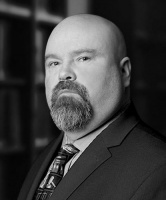Hometown Criminal Lawyer, Illinois
Sponsored Law Firm
-
 x
x

Click For More Info:
-
Law Offices of Scott T. Kamin
53 W. Jackson Blvd Suite 1057 Chicago, IL 60604» view mapCriminal Defense & Felony If The Police Were Wrong, CALL SCOTT
My goal as your criminal defense lawyer is to help you minimize the consequences you face. I have extensive outside resources and an experienced staff on my side.
800-963-2980
Christopher Matt Robert Wright
✓ VERIFIEDChristopher has been instrumental in facilitating positive outcomes for criminal and civil cases. With half a decade of industry experience, Christoph... (more)
Gregory Raymond LaPapa
✓ VERIFIEDAs a longtime resident in Chicago, IL, Attorney Gregory R. LaPapa is proud of the roots he has in the community and honored to use his skills to help ... (more)
James Anthony Podgorny
James A. Podgorny is a sole practicing attorney, which means he will be the only attorney you will deal with at the firm. You will not be shuffled amo... (more)
Joseph J. McNerney
✓ VERIFIEDWhen you’re embroiled in a legal battle involving a criminal case or traffic violations, make sure you’re effectively protected against severe con... (more)
FREE CONSULTATION
CONTACT Scott Kamin Chicago, IL
Scott Kamin Chicago, IL Practice AreasExpertise
Practice AreasExpertise




